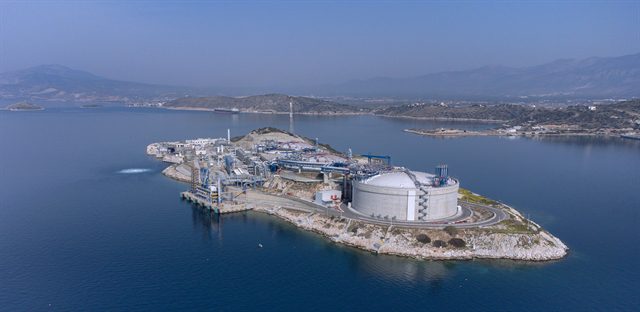
According to Bulgaria’s interim energy minister, the country has secured an agreement to double its reserved capacity at a new liquefied natural gas (LNG) facility built off the shore of the northern Greek port of Alexandroupoli.
According to Rossen Hristov, increasing the LNG terminal’s reserved capacity to 1 billion cubic metres (bcm) of gas every year will help the Balkan nation to ensure diverse and continuous gas supplies. The LNG terminal is expected to begin operating at the end of 2023.
A group led by the Copelouzos family of Greece, the Greek gas producers DEPA and DESFA, Bulgartransgaz of Bulgaria, and Gaslog of Cyprus will together make the Alexandroupoli terminal together.
It will be capable of storing 153,500 cubic metres and processing 5.5 billion cubic metres of LNG every year.
The interim government, which generally faced criticism in Bulgaria for continuing to receive gas shipments from Russian company Gazprom, has recently announced plans to release tenders for medium- to long-term gas deliveries and a desire to import more LNG gas via Greece.
Bulgaria is struggling to receive natural gas at the best prices for the upcoming winter after Russia’s Gazprom cut off its gas supply in April because Sofia refused to pay in rubles among European sanctions on Russia for its invasion of Ukraine. Gazprom suspended the gas deliveries due to their rejection.
The interim government is trying to negotiate with Gazprom to extend their ongoing contract, which expires at the end of 2022, and to resume gas supplies Bulgaria has not received since April or June of 2019.
On Monday, Energy minister Hristov stated that Gazprom has not yet reacted, and the interim government didn’t find it beneficial to sign a new agreement with the Russian energy company ( Gazprom).
Many local energy experts have criticised the nation as being irresponsible, and everyone is pointing out how Russia has used gas as a political weapon to separate EU countries from each other and highlighting the dangers such discussions could pose in a potential future arbitration case.
